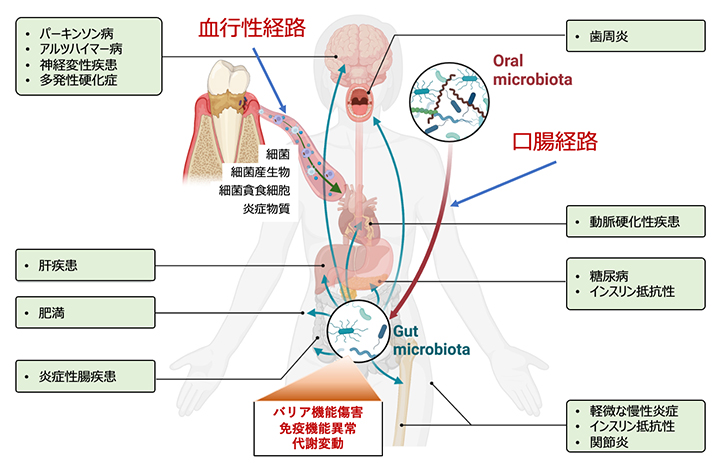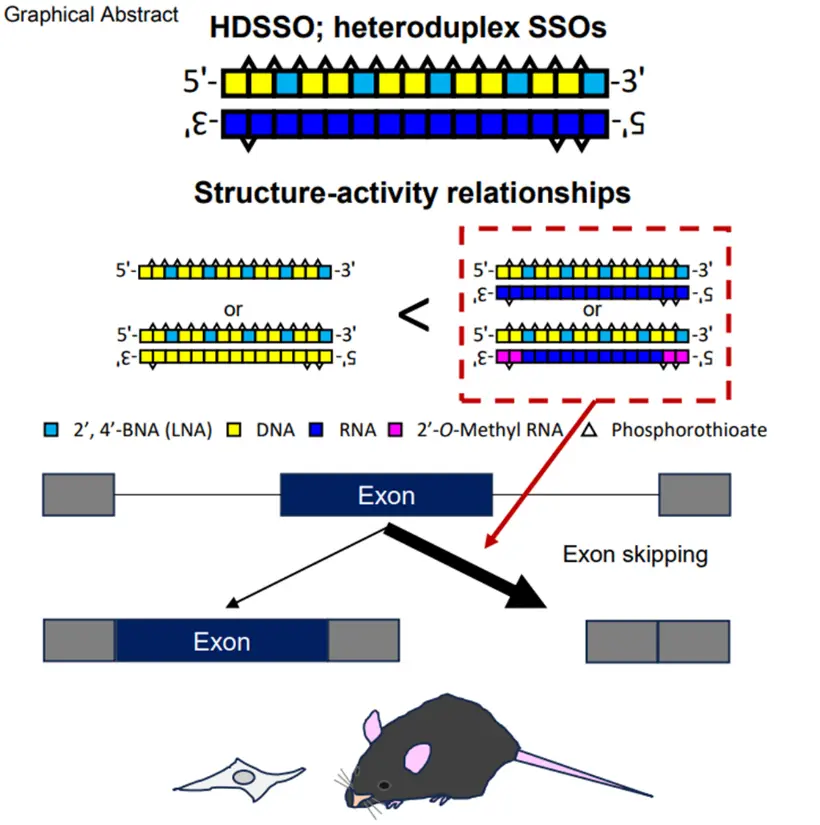2025-05-22 理化学研究所,新潟大学,群馬大学

歯周病が全身疾患に影響を与える因果メカニズム
<関連情報>
- https://www.riken.jp/press/2025/20250522_1/index.html
- https://www.tandfonline.com/doi/full/10.1080/20002297.2025.2499284
歯周炎患者では腸内細菌叢の持続的異常と血清メタボロームが異なることが明らかに Patients with periodontitis exhibit persistent dysbiosis of the gut microbiota and distinct serum metabolome
Eiji Miyauchi,Kyoko Yamazaki,Yuuri Tsuboi,Takako Nakajima,Shigeru Ono,Kentaro Mizuno, …
Journal of Oral Microbiology Published:08 May 2025
DOI:https://doi.org/10.1080/20002297.2025.2499284
ABSTRACT
Objectives
Animal studies suggest that periodontopathic bacteria induce gut dysbiosis and related pathology, possibly connecting periodontitis to non-oral diseases. However, the effects on the gut ecosystem in periodontitis patients are not fully understood.
Methods
We conducted a comprehensive analysis of the salivary and gut microbiota using 16S rRNA sequencing in periodontitis patients before and after treatment, comparing them to healthy participants. Serum metabolites were also analyzed.
Results
Periodontitis patients showed high alpha diversity in both salivary and gut microbiota with a strong correlation. Significant differences were also observed in the gut microbiota composition between patients before treatment and healthy participants, irrespective of the ectopic colonization of periodontitis-associated bacteria in the gut. Co-abundance group analysis demonstrated that the gut microbiota of healthy participants was enriched with short-chain fatty acid producers. Changes in the gut microbiota coincided with alterations in the serum metabolite profile. While periodontal therapy improved salivary microbiota, it did not significantly affect gut microbiota.
Conclusions
Gut dysbiosis of periodontitis patients may impact systemic metabolite profiles. Given that periodontal therapy alone did not substantially improve the gut microbiota, adjunctive strategies targeting the gut microbiome may be effective in reducing the risk of periodontitis-associated diseases.
KEY MESSAGES
- Patients with periodontitis demonstrated gut microbiota dysbiosis, characterized by a decreased proportion of short-chain fatty acid-producing bacteria.
- Changes in the microbiota were accompanied by alterations in the serum metabolome.
- Although periodontal therapy improved the salivary microbiota, it had little effect on gut microbiota composition, highlighting the need for adjunctive interventions targeting the gut microbiota to mitigate systemic risks associated with periodontitis.

